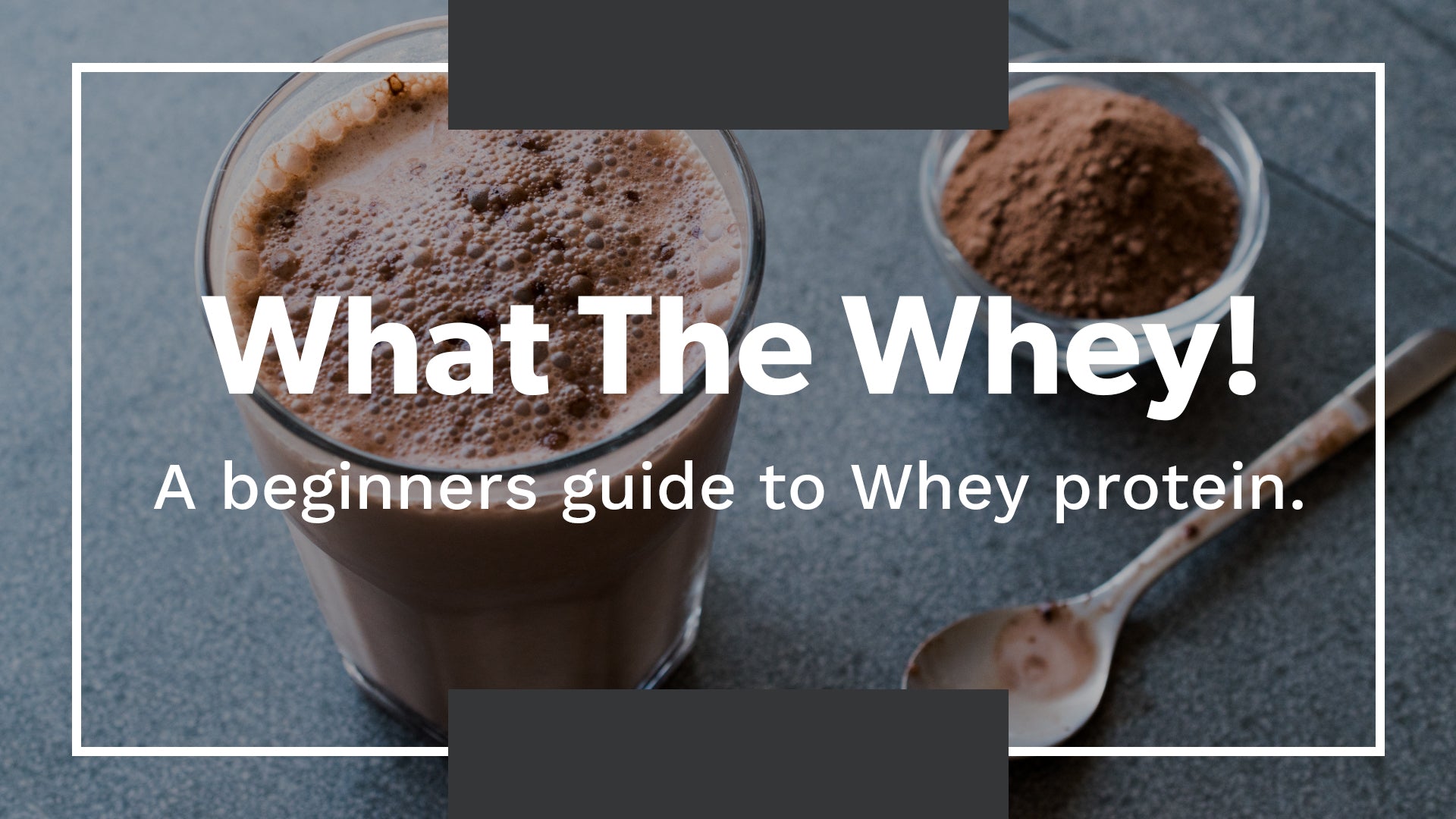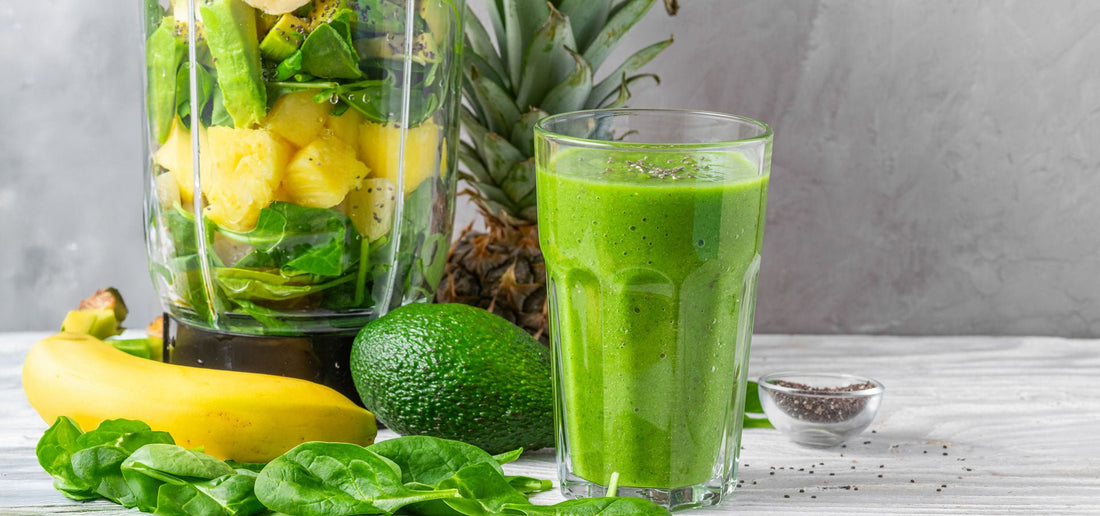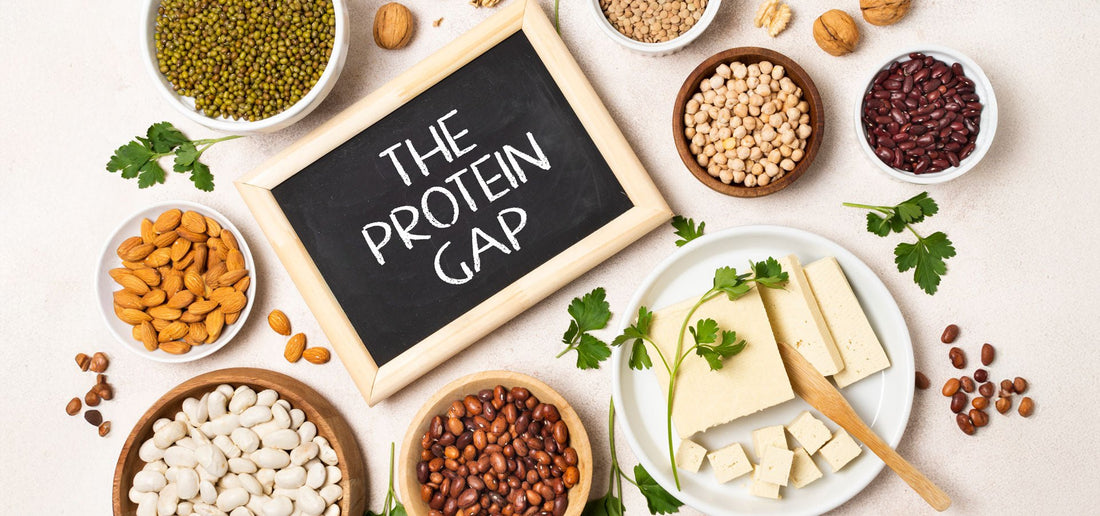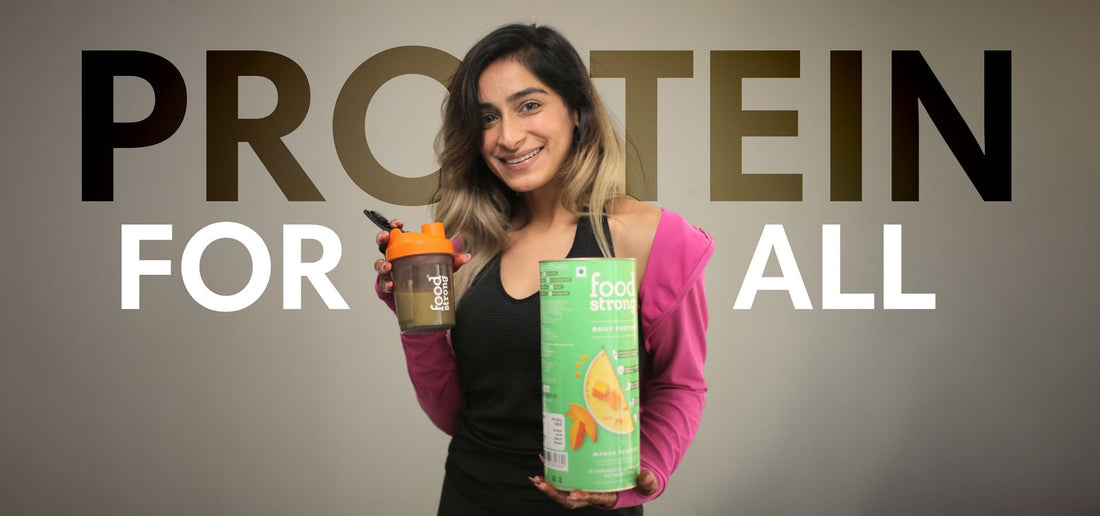Look anywhere online and you’ll be undoubtable bombarded with the myriad health benefits, tips, tricks & myths surrounding Whey Protein. This blog post is a definitive guide to help you gain clarity on one of the most effective & scientifically backed health supplements out there.
Before we delve into what whey protein is, let’s first address what it’s not, it’s NOT a Steroid or a Hormone, it’s not Addictive & it’s definitely not harmful for you.
Whey protein powder was first synthesized for human consumption in the 1930s. But we all have seen whey in it’s precursor stage, that’s right, in the cheese making process (like home-made paneer) when you hang the cheese curds to expunge the excess liquid. That milky translucent liquid residue is the aforementioned whey! Once the liquid whey is pasteurized and dried, it turns into whey protein powder that is widely available today making it 100% vegetarian.

What’s so special about whey protein?
Whey has quite a diverse amino acid profile. It contains amino acids such as glutamine, the dopamine aide tyrosine, arginine, and others such as lysine, glycine, phenylalanine, and aspartic acid.
Whey also contains the ever-crucial branch-chained amino acids. or BCAAs. These complex natural chemicals are the building blocks of your body helping with overall wellness, longevity, muscle repair and building.
So why should you care?
Research indicates that close to 80% of Indian diets are critically protein deficient. This implies that Indians are not getting the right amount of their daily protein requirement that has a whole host of repercussions. A diet deficient in protein can lead to:
- Loss of muscle mass:
Your muscles are made of protein and if your body is protein-deficient, you tend to lose the muscles, this process is called muscle atrophy. This in turn reduces your strength, makes it harder to keep your balance and slows your metabolism.
2. Skin, nail & hair health:
A low protein diet can leave its mark on your skin, nails & hair which are essentially made of protein and other compounds. Brittle nails & Dryness of the hair are hallmarks of a low protein diet.
- Makes body more susceptible to infections:
A protein deficiency in the diet has an adverse effect on the body. It weakens the body’s immune system. The immune system is responsible to provide antibodies. A weak immune system leads to you being more prone to infections.

- Brittle & fragile Bones:
A protein deficient body affects the bones in a critical way. To maintain strength and bone density you require protein. Insufficient protein weakens your bones, making them fragile and causes bone fractures frequently.
- Increased appetite and food cravings:
Protein keeps you satiated for a long period of time, thereby keeping you from craving foods that are processed and unhealthy. Most of the foods that are processed tend to be high in calories.

Luckily most of these complications are reversible with upping your daily protein intake. To help replenish your protein stores.
So why Whey Protein?
Whey Protein Powder vs other sources of protein.
So you may be thinking, why not simply increase the intake of your trusted daals, meats & dairy products to offset your diet that may be lacking protein.
For starters if you are vegetarian, you have limited protein options to choose from, and
The ones that are available in their commonly available form lack the complex amino acid profile your body requires. Secondly our fast paced lifestyle impedes us from meal prepping in advance and diets that are available online are either too complicated to follow or are so strict that sticking to them for a long term is impossible.
Lastly Whey protein is one of the best sources of protein out there when compared gram for gram. Below is a graph that shows commonly available items and their protein content:

So it's clear that whey protein has a superior protein content making it the perfect option for a quick and effective protein supplement.
The bottom line
Whey protein has come a long way since it was first introduced in the 30s; they have become purer and are available in hundreds of delicious flavours to savour.As the world moves more towards sustainability, mindful and ethical animal husbandry practices. Grass Fed Whey is the future of whey protein.
Simply put Grass Fed whey is derived from the milk of cows that have only eaten high quality grass-feed & haven’t been subjected to any hormones or human interventions to bolster the production output. The result is a 100% natural & nutrient dense whey protein that has a superior amino acid profile and has a BCCA content of 1.3x regular whey protein powder.
The extracted protein powder also has higher Omega-3, Vitamin (E&B) and minerals like calcium, magnesium and potassium.
If you have any questions about whey protein or about Our Grass fed whey protein [Hyperlink]. Do let us know in the comments below or email us at email@email.com and we’ll be happy to help.





